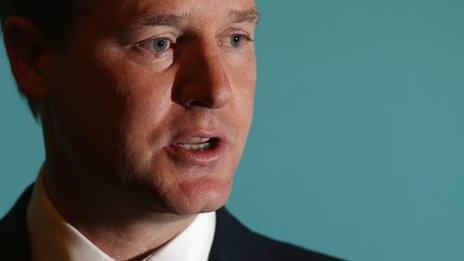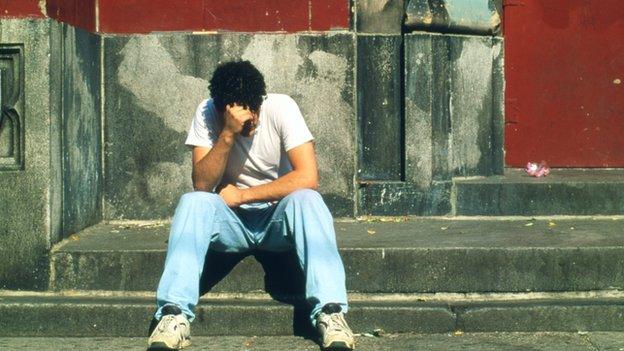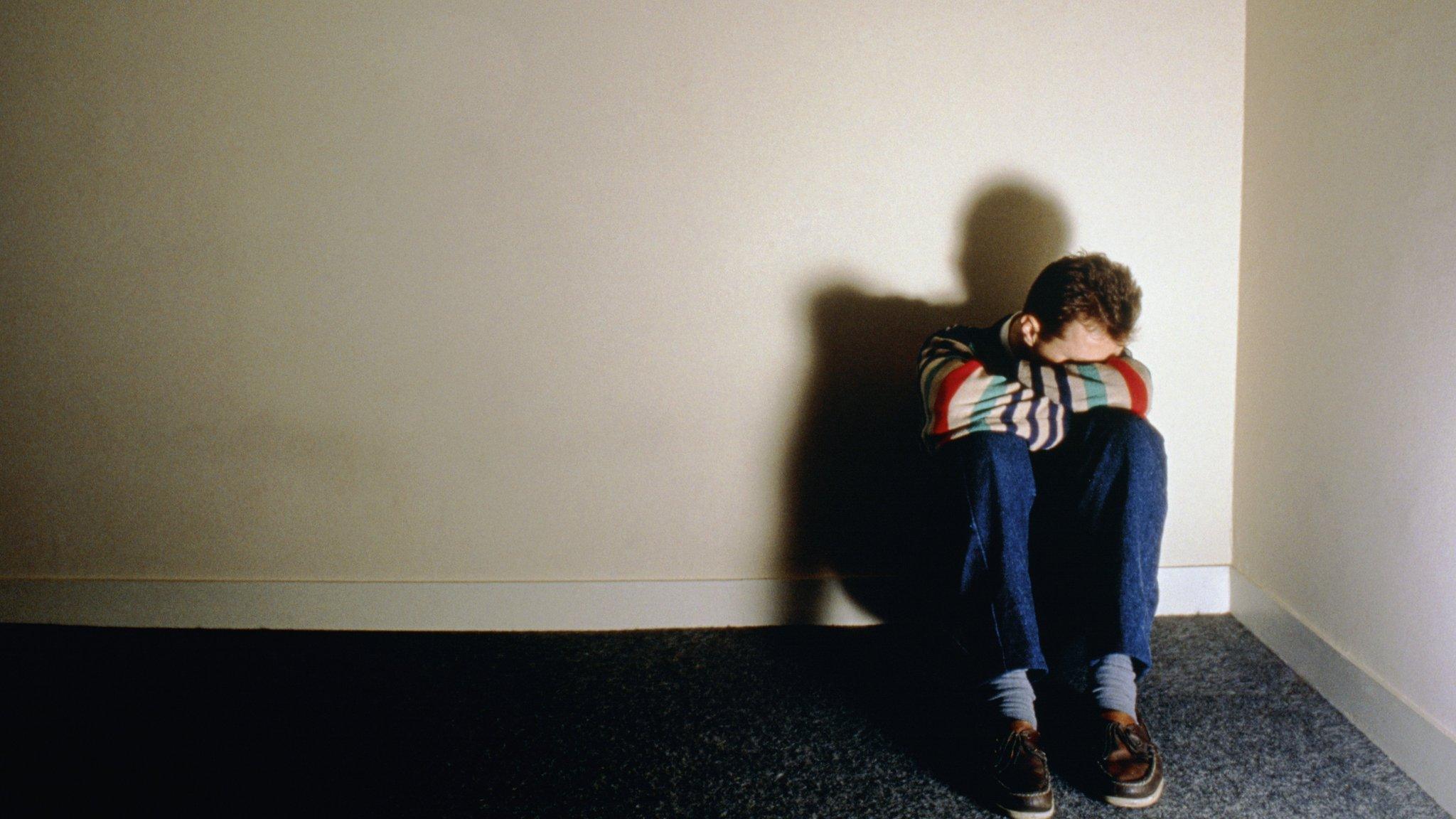Clegg: Mental health research 'needs boost'
- Published
Nick Clegg: "We want a new mental health research fund"
A major push is needed to boost mental health research, Liberal Democrat leader Nick Clegg has told the BBC.
The Deputy Prime Minister said his party's next election manifesto would include a pledge to raise annual research spending in England by £50m by 2020.
Mr Clegg said the sector needed a breakthrough "comparable to penicillin".
Campaigners welcomed the Liberal Democrat leader's initiative.
Mr Clegg said: "My ambition is that we should understand mental health just as well as we understand physical health.
"I want us to be able to talk about, analyse and treat depression just as we treat diabetes.
"For far too long mental health has been a bit of a taboo subject - yet it affects one in four people in this country."
Mental health charities have long argued that the issue lacks the profile of other diseases and conditions.
Spending gap
According to an analysis published in the British Medical Journal, mental health accounted for 23% of the UK's "disease burden" (the burden on society of all diseases and health conditions) but received only 6% of total medical research funding.
Cancer, by contrast, accounted for 15% of the disease burden but received 27% of research funding.
It is estimated that annual mental health research spending is £74m, most of which is through government agencies rather than charities or other organisations.
Mr Clegg's pledge is that this would be boosted by £50m annually by 2020, the final year of the next parliament.
Mark Winstanley, chief executive of the charity Rethink Mental Illness said: "This is a welcome move and we hope the other main parties also make this issue a priority.
"It's a scandal that our understanding of mental illness and the best treatments, still lags so far behind our understanding of physical illnesses.
"It is yet another area in which people with mental health problems are expected to put up with second best."
Experts in the field argue that antipsychotic medications for people with schizophrenia and psychosis have barely changed over the last few decades and create often debilitating physical side-effects.
Many psychiatrists have called for more work on alternative therapies and treatments.
'Shunted around the country'
The King's Fund think tank says that the coalition government has actually overseen a decline in spending on mental health.
Its analysis suggests inflation-adjusted spending has decreased from £11.5bn in the 2010/11 financial year to £11.3 bn two years later which, given the increase in the population, they say means spending per head fell by a greater proportion.
Shadow Health Secretary Andy Burnham said people would be sceptical of future promises from the deputy prime minister.
"He promised parity between mental and physical health, but ended up presiding over a situation where vulnerable people are forced to travel across the country for treatment and others kept in police cells because a short of beds."
Mr Clegg says there have been pressures on mental health funding.
But he said it was "wholly unacceptable" that some vulnerable patients had been "shunted around the country" by mental health trusts searching for beds.
He points out that spending on certain therapies and child mental health has gone up.
- Published20 January 2014

- Published11 July 2014

- Published24 June 2014
